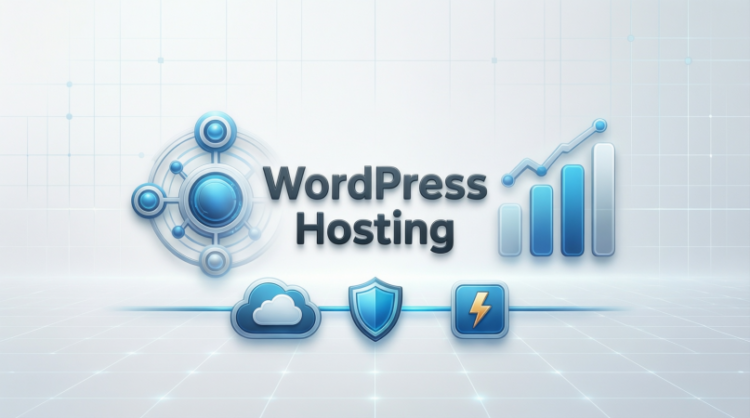
- 1. Introduction: Understanding the Importance of a Business Plan
- 2. Executive Summary: Captivating Investors with a Clear Overview
- 3. Market Analysis: Exploring the Target Market and Competition
- 4. Cost and Revenue Projections: Developing Financial Forecasting
- 5. Marketing and Sales Strategies: Building a Strong Brand and Customer Base
- 6. Management and Operations: Establishing an Effective Team and Processes
- 7. Risk Assessment and Mitigation: Identifying and Addressing Possible Challenges
- 8. Conclusion: Refining Your Business Plan to Achieve Success
- FAQ
Essential Elements of a Successful Business Plan. A business plan is often referred to as the roadmap to success for any new or established venture. It is a comprehensive document that outlines the goals, strategies, financial projections, and operational details of a business. A well-crafted business plan is essential for securing funding from investors, guiding daily operations, and measuring success. In this article, we will explore the essential elements of a successful business plan, and provide insights and tips to help you create a plan that will set your business up for success.
1. Introduction: Understanding the Importance of a Business Plan
What is a Business Plan and why is it crucial?
A business plan is a written document that outlines a company’s goals, strategies, and financial projections for the future. It is a crucial tool for entrepreneurs and businesses of all sizes as it helps them to clarify their vision and roadmap, highlight their unique selling proposition, and secure funding from investors, lenders, and other stakeholders.
A well-crafted business plan provides businesses with a comprehensive framework that guides them in making informed decisions and measuring their progress towards achieving their objectives.
2. Executive Summary: Captivating Investors with a Clear Overview
Writing a concise summary of your business plan
How to highlight your unique selling proposition
Presenting your financial projections in the Executive Summary
The Executive Summary is a concise overview of your business plan that captures the attention of investors and other stakeholders. It should be written in an engaging and persuasive way that clearly communicates your value proposition, target market, competitive advantage, and financial projections.
To write a compelling Executive Summary, start by introducing your company and mission statement. Next, highlight your unique selling proposition and market opportunity. Then, outline your growth strategy, revenue model, and sales projections. Finally, present your financial projections for the next three to five years, including revenues, expenses, and cash flow.
3. Market Analysis: Exploring the Target Market and Competition
Conducting thorough market research
Analyzing your competition and identifying opportunities
Defining your target audience and creating buyer personas
Market analysis is a critical element of a successful business plan. It involves researching and analyzing your target market, competition, and industry trends to identify opportunities and gaps that your business can fill.
To conduct a thorough market analysis, start with secondary research to gather data on the size, growth, and trends of your industry. Next, analyze your competition’s strengths, weaknesses, and market share. Finally, define your target audience and create buyer personas that capture their demographics, behaviors, and pain points.
4. Cost and Revenue Projections: Developing Financial Forecasting
Determining the costs associated with starting and running your business
Creating revenue projections for the short and long term
Tools and resources for financial forecasting
Cost and revenue projections are critical elements of a business plan as they provide investors and lenders with a clear understanding of the financial viability of your business.
To create financial projections, start by estimating the costs associated with starting and running your business, including fixed costs (such as rent and salaries) and variable costs (such as marketing and inventory). Next, create revenue projections for the short and long-term that take into account market demand, sales targets, and pricing strategies. Finally, use financial forecasting tools and resources to create financial reports and models that demonstrate the financial feasibility of your business.
5. Marketing and Sales Strategies: Building a Strong Brand and Customer Base
As an entrepreneur, one of the most crucial elements of your business plan is your marketing and sales strategy. Your ability to reach your target audience and convince them to buy your product or service is essential to your success. A comprehensive marketing plan must be created, which includes identifying your target market, developing a unique selling proposition, and creating a branding and positioning strategy that resonates with your audience. Along with this, creating a sales strategy that supports your goals is equally important. This includes determining the sales channels you will use, creating a sales forecast, and identifying the key sales metrics you will measure to track your progress. Building a strong brand identity and voice helps to differentiate your business and build a loyal customer base, making this a critical component of your marketing and sales strategy.
6. Management and Operations: Establishing an Effective Team and Processes
Effective management and operations are key drivers of business success. To achieve this, you must define roles and responsibilities within your team, create organizational charts and process maps, and establish standard operating procedures (SOPs) to streamline operations. This helps to ensure that everyone in your team knows what is expected of them and the processes they must follow. SOPs also help to ensure consistency in your products and services, which is vital for building trust with your customers. Effective management and operations help to create a well-organized and efficient team, which is essential for achieving your business goals.
7. Risk Assessment and Mitigation: Identifying and Addressing Possible Challenges
No business is without its risks and challenges. Identifying potential risks, developing contingency plans to mitigate them, and implementing risk management strategies and tools are essential for managing them. This includes identifying potential financial, regulatory, operational, or reputational risks and creating contingency plans to address them. It is essential to have a risk management plan in place to protect your business from potential risks and ensure its long-term sustainability.
8. Conclusion: Refining Your Business Plan to Achieve Success
Finally, it is crucial to review and refine your business plan regularly. This helps you to stay on track with your goals, identify areas of improvement, and adjust your strategies to adapt to changing market conditions. Celebrating successes and learning from mistakes are equally important as they help to motivate your team and improve your overall business performance. Maintaining flexibility and adaptability in the face of change is equally important. You must keep an open mind and be willing to pivot your strategies if necessary to achieve success. By refining your business plan, you can ensure that your business remains competitive, profitable, and sustainable over the long term.In conclusion, a successful business plan is a crucial tool for any entrepreneur or business owner to achieve their goals. By incorporating the essential elements discussed in this article, such as conducting thorough market research, developing financial projections, and implementing risk management strategies, you can create a strong and effective business plan. Remember to review and refine the plan regularly, celebrate successes, and learn from mistakes to stay on track towards achieving your business goals.
FAQ
1. What is the purpose of a business plan?
A business plan is a comprehensive document that outlines the goals, strategies, financial projections, and operational details of a business. Its primary purposes are to secure funding from investors, guide daily operations, and measure success.
2. What are the essential elements of a successful business plan?
The essential elements of a successful business plan include the executive summary, market analysis, cost and revenue projections, marketing and sales strategies, management and operations, and risk assessment and mitigation.
3. What are some tools and resources for financial forecasting?
There are many tools and resources available to help with financial forecasting, such as software programs like QuickBooks and Excel, industry-specific financial projections templates, and online calculators and financial modeling tools.
4. How often should I review and refine my business plan?
It’s important to regularly review and refine your business plan to ensure it remains relevant and effective. It’s recommended to review your plan at least once a year, or whenever there are significant changes to your business, such as a shift in market conditions or a change in leadership.
Read More :





